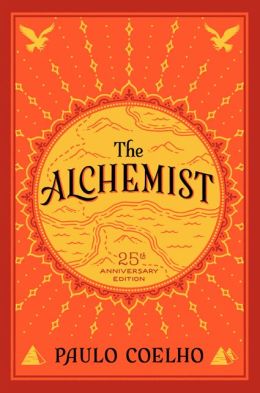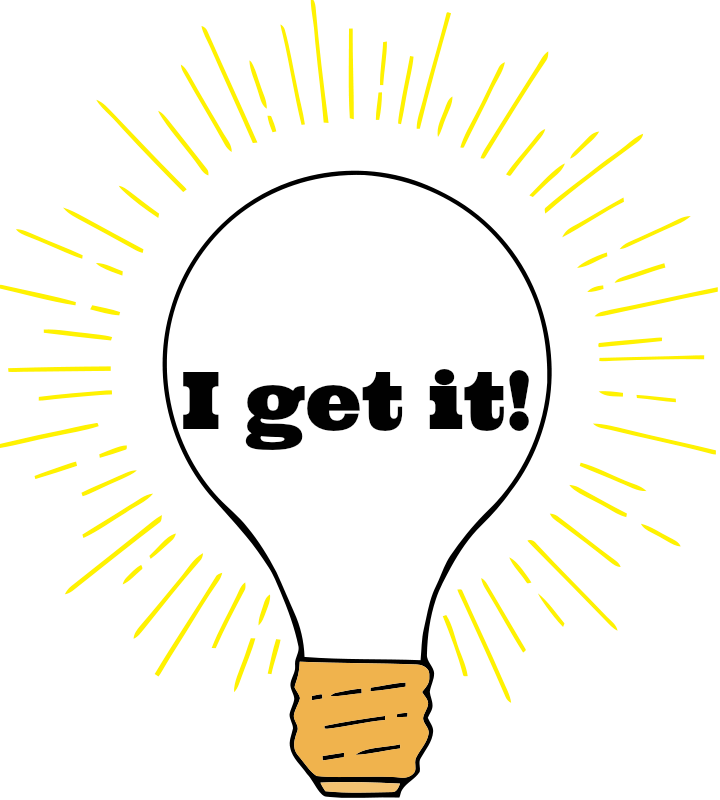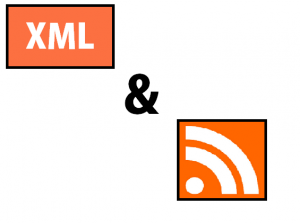Aug
19
Hypertext Vs Hyperlink
August 19, 2014 | Uncategorized, Week 5 | Leave a Comment
Today symposium makes me think what are the difference between hypertext and hyperlink. It turns out that hyperlink is the link and hypertext is the text with link. Hah so funny.
So hyperlink is a tool that is used to transfer readers to another page. It is a link and is reference in a hypertext docs to another doc and another page with same text.
While hypertext is the text that we seen on pages/webpages that contains hyperlinks that takes people instantly to other pages! Thanks god for those who wrote all those html and php coding for the simple things we have now.
That clears things up!
(Lightbulb image from Cedarlifeacademy.com)
Aug
19
Symposium 5
August 19, 2014 | Symposium, Week 5 | Leave a Comment
This week symposium is about hypertext, there were three questions. First, How is hypertext relevant to us as media practitioners. Secondly, What prediction about network literacy should we be aware of. Third and finally, what are the consequences of being network illiterate.
I have to say today symposium is both interesting and complicated at the same time. Adrian and the rest of the tutors covers everything quite perfectly but it was towards the end where Adrian began to explain about ‘literacy’ and being network literacy is where I started to feel my head spins. We’ll get to there.
So hypertext is link to us as media practitioners whether we like it or not, though we are not required to do it as deeply and as intensely as programmers but it is important to understand the theory behind it. It has become a fundamental thing as IT IS linked to the internet so to be network literate, who uses a lot internet, understanding hypertext is crucial. Hypertext links to a wide and vast range of information, it is a non-linear form . Elliot uses the example of media using the network/hypertext/internet to expand, and it no longer keep their media in one form say TV or Radio but rather expanding to other form and in this era, the digital world. I guess the way I understand it is that not understanding hypertext is the same thing not understanding internet.
Another way Adrian explain hypertext is that its a small pieces and have multiple ways of connecting, its are small pieces that can be used in bigger context and are stored to be use for a long time. Going to answer the second question is that i think that network literate is tightly connected with technology advancement and it seems that technologies are becoming more and more literate so we need to be network literate too. And being illiterate in the future is the same thing being hopeless and powerless as it is the power of the future, network literate that is.
But here where Adrian sort of lost me. He mention that being network literate is not the same with able to use the internet and how to click a button to go to somewhere else. Network literate is those people who create pages of html and php pages that make a simple clicking button connects us to other page. So here I am thinking what is being network literate. How do we know we are network literate? So in some sense we do need to understand how to program to be network literate! So am I network literate?
After all this, I’m not sure!
Aug
18
Hypertext
August 18, 2014 | Readings, Week 4 | Leave a Comment
Nelson talks on ‘Hypertext’ as something which is non-sequential writing which means that the text written will not only stay in one place and talks about one thing, instead it will branch out and allow the readers to have a choice just like so many other things in the world do that to us too now. When I first read the title Hypertext my thought immediately went into HTML, the two of them connected in this reading but Nelson is more specific on how hypertext connect to so many other things outside while HTML is a more of a coding program.
Nelson talks on how the computer world and contents differ with prints and books and he feels that with all this new innovations the dark side of incompatibility is inevitable. Nelson said, “These colorful and varied facilities cannot be combined or used at the same time, let alone have their contents displayed side-by-side. No longer on the same shelf, … , used on different computers and stored in different disk.”
I find his quote to be very interesting as it is somewhat true seeing that now almost everyone live with a basic computer literacy, know how to turn on the computer and how to use it and make the best out of it. I guess what he was trying to say was that because now hypertext offer a way to link and reach so many think in just a blink of an eye that information has become too vast and their content is hard to be display together as things just branch out making a larger map and therefore we have a never ending information.
Another thing that I find fascinating is his take and vision on the future saying tat office will be paperless, education will promote initiative and understanding rather than sequence and the possible ‘death’ of book publishing. His vision is something that myself could envision seeing that even now things are starting to shape towards that direction, people reading e-docs rather than book, school starting to change so yes I do believe that all of that is possible but not so in the ‘death’ of book. Why? like Adrian says before that print and network live side by side and although it is easier to have your book in the iPad or laptop nothing beats the feeling to actually read and hold a book in your hand so I will think in the future book will still exist and it will never die as it is also part of our culture and tradition.
Aug
18
Classical my life
August 18, 2014 | Uncategorized, Week 4 | Leave a Comment
These last few days has been one of the most hectic days I’ve ever had. Every single day I would be outside the house from 9am in the morning and won’t be back till at 6/7pm. This is the first time I have truly experience a crazy uni days, my previous semesters are nothing compare to this fourth semester. Luckily for me, I have the perfect medicine for my stressful soul. Classical Music.
So here’s a little something that I hope do the same miracle as it did with me!
That music reflects what I feel that day. And here’s a little something for you to read while listening to the music, ‘The Alchemist’ by Paulo Coelho.

The Alchemist
(The Alchemist, picture taken from Barnes & Noble)
The quote ‘Never judge a book by its cover’ is true, whether you apply it metaphorically or literally. When ‘The Alchemist’ came out a few years ago, I ignored my heart and judge it without actually reading it and how wrong was I. Finally I followed my old conscience and bought it.
The alchemist turns out to be a fantastic book. Although it is a fiction novel, for me it is quite real. Paulo Coelho has done a marvelous job in metaphorically write about our life and ‘destiny’ into this particular book.
The story recounted how in the young shepherd travel he encounter so many issues and walls, similar to our own lives how we too often blocked by things that tries to deterred us from our dreams and future. When we live, it is not a matter whether you have the resources to achieve your future, rather whether you have the heart and will to do so. Consequently, I link this story with whether we have an end or a beginning, this book tells us that we are part of a greater thing. That we are all link to one another, and therefore sort of based on what I said previously that we too have no beginning nor ending as we are a never ending circle of life.
So that’s what I did when I feel down and stressed, Hope it will help you too 🙂
Ps: Paulo Coelho is an amazing writer, go check out his blog! Better yet Go read the Alchemist as it will change your view on life.
Aug
15
What the Future Holds
August 15, 2014 | Readings, Week 4 | Leave a Comment
This weeks reading from As We May Think talks about the future machine, technology, and knowledge. The author Dr. Vannevar Bush, being a great doctor is very interested to the development of science and therefore the future machine that will help science growth, he discussed how technology has changed and how it continuously developed and shaped the human lives and perspective. His examples include how typewriter remediates into computer that we used now, how automobiles has changed to super cars, and how camera is so much more advance than before. I think his view is very interesting and very ‘appropriate’ seeing as we are born and lived in the digital age.
I’m a big fan of gadgets and new technologies so their growth is something that I anticipate seeing as newer generation of technology is often-very astounding. An example I guess is Playstation. The first playstation was a huge thing during back then, everyone has it, everyone talks about it, it was GOD. Then playstation 2 comes along with better graphic, better game quality, and other things and we moved from PS1 to PS2 like a moth to a flame. Then as time goes PS3 then PS4, it was crazy. But what I’m trying to make a point is that there is no stopping to the growth. New techs with better quality will always comes out one after another, Parents hates it but Children and other gadgets lover loves. I mean look at Ipad, we have like 4/5 series of them and I do know that a friend of mine actually has all of them.
I always believed that all the sci-fi things we’ve seen in movies all those hover cars, space ships, teleportation, and so many other human ‘ideas’ is so possible in the future. I even dare to say that it will happen. No one knows what the future holds and certainly no one knows what technologies will become in 10, 20 years to come. There are just so many possibilities and future that technologies hold in the palm of their hand.
(Future Technologies, by Celebnwall)
Aug
15
Symposium 4 : Trust Your Instinct!
August 15, 2014 | Symposium, Week 4 | Leave a Comment
This week we look deeper into the reading we have done.
One of the things discussed is about the validity of stuff and information we found in the internet. There are numbers of way to check whether the information we are looking at is valid or not, personally I try to look on a trusted website for example, there are a lot of news about someone famous died and to check whether this info is real or not is to check on news website like ABC, TheAge, New York Times, etc. if they have it on their website then 90-100% it would be real.
Just like Adrian says it ‘Common Sense’ but then again I guess it also depends on your culture, how you were raised and how often you use the internet. For example, if someone rarely use the net and they found something I guess they would incline to believe it and won’t even bother to double-cheked it, or if the person nature is gullible and trusty then I guess they too would believe it easily. But I myself believe that each people has what’s is called intuition and most of the time our intuition will be correct and that we should trust it.
Trust Your Instinct!
Aug
11
Network Literacy
August 11, 2014 | Readings, week 3 | Leave a Comment
The reading for network literacy is written by Adrian himself explaining how network literacy works and how it differs from print literacy and the ‘normal’ understanding of literacy.
It started off with an example of a student, Penny, who is looking a book. She went to the library, search for the title and author, consult a librarian who in turn gave her a section on where to locate it then she went and borrow three books. At home she open the book and use quotes from the book, making sure to note which page the quote come from. This whole process is considered to be a print literacy but not the usual literacy of reading and writing but a more participatory literacy. It is a deeper understanding of what it means to be a peer/participant and with this whole notion of literacy we could use it to begin to understand the concept of ‘network literacy’.
Network literacy does not hold the same meaning as computer literate, it is not just the understanding on how to use the computer rather it is more towards the action of participating in the internet and have a good knowledge on networks and how it function as we understand hard-copy materials like prints. However it doesn’t mean that you need to understand the whole programming idea, it’s more to understand the function of network since it will help you to use it. In the internet, there exist a wide range of information which we contributed in as well as taking it for ourselves. To be a good network user, we have to contribute as much as we consume.
One crucial aspect of being network literate is to pay attention to websites that are able to communicate with each other such as Flickr, WordPress, etc. How do we do that? Well there are two ways, XML which is a way to standardize publication so people can share it, while RSS is a system based on XML that allow the exchange information to happen.
(Created by Callista)
However here comes the confusing part being network literate is not the same with able to use the internet and how to click a button to go to somewhere else. Network literate is those people who are able to create pages of html and php pages and make it as simple as clicking a button to connects us to other page. So here I am thinking what is being network literate. How do we know we are network literate? So in some sense we do need to understand how to program to be network literate! So am I network literate?
So knowing all this, are we all network literate or are we just computer literate, Think about it! I myself is a bit overwhelmed and have no idea whether I’m one! And this is my reaction….

Ugh….So confusing…
(Why don’t you like my post from Aww Club )
Aug
8
Essay’s ?
August 8, 2014 | Readings, week 3 | Leave a Comment
One of the reading for week is three is long but fascinating, it is about essays. It started off with an introduction of essay’s. How it come to be, where it is originated and why it is used widely now. Being a student that comes from a non-English speaker as well non-essay academic background, I have always struggled when writing essays. I do know the structure of it from the introduction, arguments, and finally reaching the end with a conclusion but that said is easier said than actually doing it. In my home country, I very rarely do essays as most of our finals and exams are tests.
I could come up with points and what I want to say but in the end I sort of got swallowed in my own confusion and ended up repeating what I have just written. Something that I learn in university is that as long you do a lot of referencing, add some quote here and there, do some paraphrasing, and BAM you got it. But somehow I keep questioning what makes a good essay? In my own perception I thought an essay is something that you know very well, the topic inside out, and you write down about that which is interesting and end it with a conclusion of what’s happening. But most of them time my essay is a just a compilation of my confusion and ended up with more questions instead of answers.
There are parts in the reading that I agree with, for example the paragraph that mention how pointless an essay since student ended up imitating professors and teachers who in return imitates old scholars who did such paper which exist since 700 years ago. In my own belief I think an essay is not something which is very effective in grading someone, because it similar to a grey area, how do you a mark a good essay? Isn’t it not fair to students or people who never or rarely write an essay not to mention having to write in English or some other alien tongue. Some professor mention their grading is based on grammars and other stuff, how about us who is not a 100% good with it. For me tests are still the better way because in tests there is only right or wrong. Everyone is judge on the same thing and graded on the same things.
So why do we still have essay?
Aug
6
Symposium 3 More on legal matters
August 6, 2014 | Symposium, week 3 | Leave a Comment
– Materials : Books/Films/ Music – the way it is linear, shapes our perception and understanding about beginning, middle, and end. They have beginning and end because they have edges, eg. book has cover. How about blog that has no edge? Blog do not have beginning or end because it’s ‘shape’ has no edges. Posts within blog is always link to other page, source, and web like a never ending cycle.
Question for symposium…
1. How much freedom do we have when writing critically of others or others’ work before we become liable for defamation or copyright infringement?
- The idea of freedom is always open to question and it is never could be interpreted in one way, it depends with the current law and is constantly changing.
- Easy way to no be considered defaming/defamatory – “Don’t write mean/derogatory stuff about people, those stuff will stay there forever and people will found out.”
- Accusation about someone which is wrong is defamation, although in some cases if it’s true you might walk away, but it rarely happens.
- Be careful between opinion and criticism, Opinion is what you think about someone without proof only feelings. While Criticism is accusation on something or someone with proof.
- It does not matter what you think, it is what the audience says matter. If someone say you are rude, then you are rude. We cannot protect ourselves.
- Copyright issue is also confusing, another easy way is to always mention about the creator and image and link it back, if the creator ask you to put it down then put it down. DO NOT USE copyright materials in movie, examples is some producer create a movie with some artist lyrics and is sued for copyright infringement. Youtube is grey areas.
2. Copyright protects published content, however this protection does not extend to the ideas or concepts that this content was based on. At what point does content or “fact” become an idea? And vice versa? For example, if someone were to publish the ‘secret’ or methods to creating content (for example someone were to reveal a magician’s trick, or the recipe to the big mac secret sauce) does that constitute copyright infringement?
- Ideas CANNOT be copyrighted, the process of something can be patent but not ideas. For example if someone have an idea about curing aids, then that idea cannot be copyright however the process to make cure can be patented.
3. How are copyright laws policed, and who is responsible for policing them? It is policed civilly by the government law and police.
It was an interesting day for me, the fog clears up a bit but I still have a lot of confusion on this legal matters. Coming from a country that have very little care on law especially the internet, this matters is a bit difficult for me to understand and comprehend!




